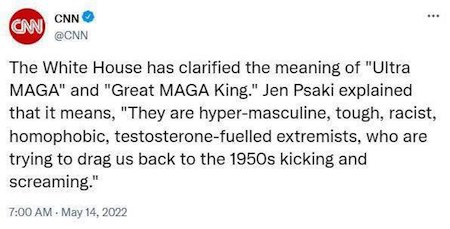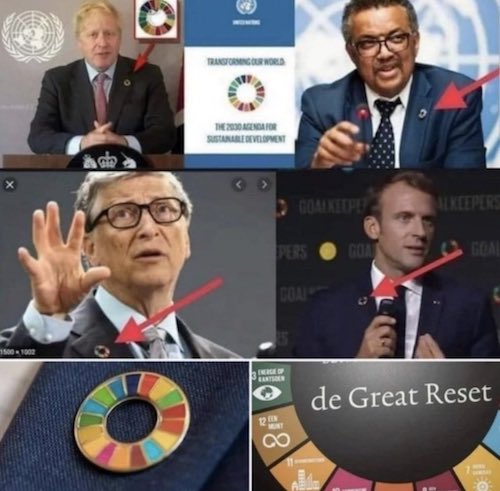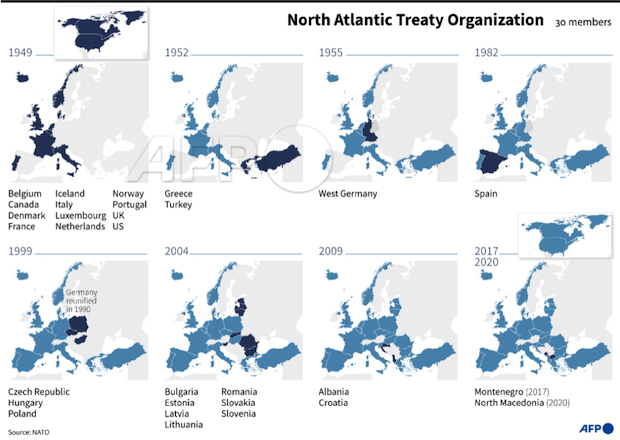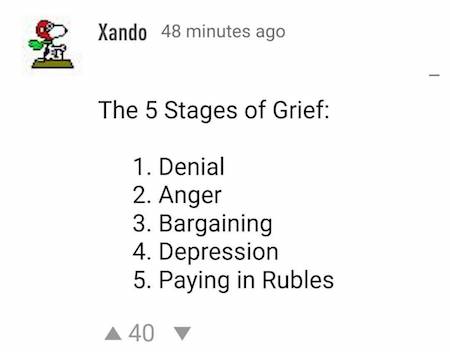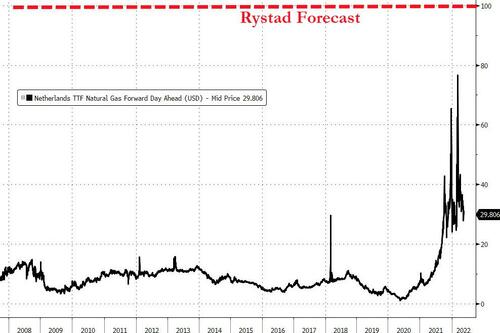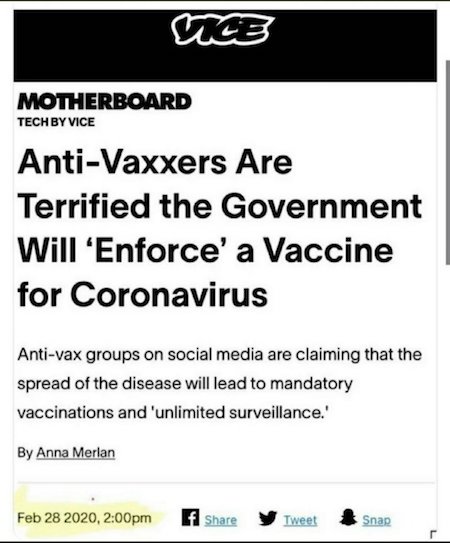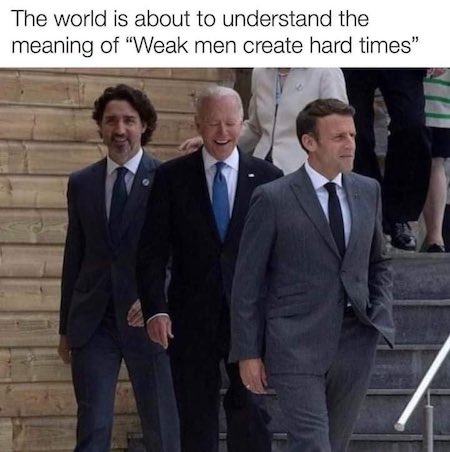
Gustave Courbet The man made mad by fear 1844

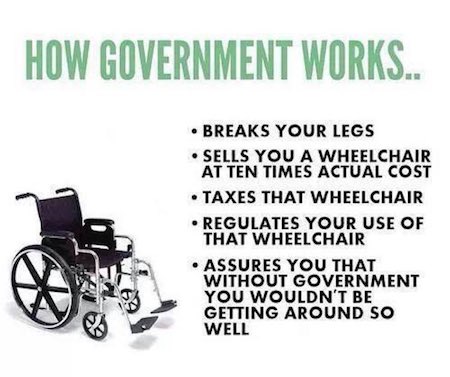

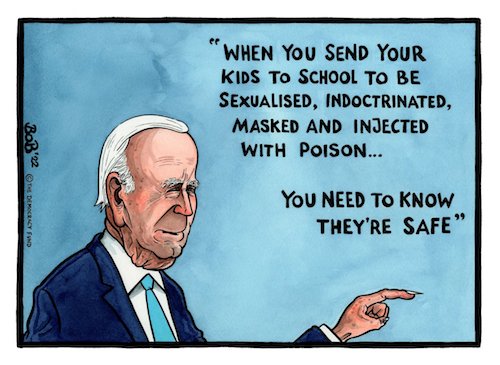



“..Zelensky indicated he was open to talks but wanted regime change in Moscow first..”
“When Ukraine says it will be fighting to regain its territories it lost, it means Ukraine will be fighting until it gets all its territory back. It doesn’t mean anything else.”
• Zelensky Hopes for Regime Change in Moscow, Plans To Reclaim Crimea (Antiwar)
Ukrainian President Volodymyr Zelensky said he wanted talks with a Russian president; however, he hoped that person was someone other than Vladimir Putin. He also called for his country to reestablish its pre-civil war borders. CNN’s Fareed Zakaria hosted Zelensky for an interview at the World Economic Forum. The event was sponsored by the foundation of Ukrainian billionaire Victor Pinchuk. In his introduction, Zakaria framed the war in Ukraine as “Russia versus the world.” During the interview, Zelensky indicated he was open to talks but wanted regime change in Moscow first. “This war will be over sooner or later. I’m sure there would be some sort of peaceful process, some sort of talks, and we would be discussing the issues of who Ukraine will negotiate, with what president of the Russia Federation.”
He added, “I hope that will be a different president in the Russian Federation.” The Ukrainian leader said his counterpart was “living in a bubble of alternative reality,” and Putin was “not keenly aware” of the situation on the ground in Ukraine. Zakaria asked Zelensky, “will Ukraine fight until it takes all the territories it lost in 2014?” Zakaria is referring to the breakaway Donbas republics – Donetsk and Luhansk – and the Crimean Peninsula that was annexed by Russia. Zelensky responded affirmatively to the CNN host’s question. “When Ukraine says it will be fighting to regain its territories it lost, it means Ukraine will be fighting until it gets all its territory back. It doesn’t mean anything else.”
During an event last week at the WEF, former Secretary of State Henry Kissinger called on Kiev to cede territory to help resolve the conflict. Zelensky responded with harsh criticism of the former American official. “Mr. Kissinger has emerged from the deep past and said that part of Ukraine should be given to Russia to avoid the alienation of Russia from Europe.” Zelensky added, “it seems that Mr. Kissinger has 1938 on the calendar instead of 2022.” The actor turned president also used the platform to plead for more weapons. Since Russia invaded, the US has approved or transferred over $50 billion in aid to Ukraine.

“..a notably pessimistic shift and negative tone..”
• Zelensky Signals Donbas Could Soon Fall (ZH)
In a Saturday night speech Ukrainian President Volodymyr Zelensky gave his most dire assessment to date of the status of Ukraine forces in the eastern Donbas region, where for over at least the last two months Russia has concentrated its forces, following the Feb.24 invasion of the country. Saturday marked the 95th day of the conflict. He described conditions there as “indescribably difficult” in what marks a notably pessimistic shift and negative tone for the Ukrainian leader, strongly suggesting the fall of Donbas – or at least whole regions such as Luhansk – could be imminent. He identified several intense ongoing battles in places with a large Russian force presence, including Severodonetsk, Lysychansk, Bakhmut and Popasna. Sievierodonets in particular is scene of fierce up-close street battles.
“But our defense holds on,” Zelensky sought to assure the public. “It’s indescribably difficult there. And I am grateful to all those who withstand this onslaught of the occupiers.” As the AP describes of some instances of “close-quarter combat”:Ukrainian regional officials reported that Russian forces were “storming” Sievierodonetsk after trying unsuccessfully to encircle the city. The fighting knocked out power and cellphone service, and a humanitarian relief center could not operate because of the danger, the mayor said. Zelensky in the address also denounced what he called “absolutely senseless, openly barbaric strikes at the Sumy region,” which left at least one person dead and seven wounded and two in critical condition, saying further mortars struck close to a kindergarten.
“These are the enemies chosen by the Russian Federation,” he added. With this, he again called on the West and world leaders to official label Russia as a “terrorist state” – something US has thus far resisted doing, even after Biden previously described Russia’s actions as “genocide”. “This is fair and reflects the daily reality that the occupiers have created in Ukraine and are eager to bring further to Europe. And this must be legally enshrined,” he said. The Biden administration has meanwhile signaled the US is getting ready to ship long-range rocket systems to Ukrainian forces, a major first marking a significant escalation. But given what appears to be Russia’s steady progress over Donbas, it’s likely too-little too-late to turn the tide for the Ukrainians in the East.

“People will instinctively choose peace over war. We are naturally possessed of that much empathy for others. You have to be marshaled into killing..”
• Whose Lies Can You Trust? (Rothenberg)
Imagine if the public had had a say over the question, in 2003, of whether or not we should invade Iraq. No, forget that. That’s not a good example. The public was in favor of it. But why? For months we were the target of an intense propaganda campaign to sway our support for a decision to attack that had already been made. If you convince people that we’re fighting them “over there” so that we don’t have to fight them “over here”, well, that figures to be enough to win them over. Now go back to 1991 and the dissolution of the Soviet Union. Much talk about a “peace dividend”. Nice ring to it. The United States has had the lion’s share of the world’s wealth since WW2, and now it had the wealth and no viable rivals anywhere in sight.
However, it was considered to be in the “national interest” to expand NATO, an alliance solely formed to counter the communist menace of the Soviet Union, which no longer existed. There was to be no peace dividend. It’s a made-up thing anyway. Since then, 13 countries have joined NATO pushing east toward Russia’s borders. Russia’s leadership regards it as a provocation. You can argue against this but only if you wouldn’t consider it a provocation if Russia had formed a military alliance with Cuba, Mexico, and Canada, or any of the three. I suspect patriotic Americans will reject this dialectic. Imagine if the public had had a say over the question, in 1991, of whether or not we should expand our military alliance with its attendant costs, or whether we should reap the dividend by seeking a more cooperative relationship with the whole of Eurasia including the Middle East.
Missing was the propaganda campaign to win our support for a peace dividend so that we could spend “over here” instead of “over there”. People will instinctively choose peace over war. We are naturally possessed of that much empathy for others. You have to be marshaled into killing. That we identify with peoples’ suffering is evident in all the Ukrainian flag flying. That’s people, not states. States deal in straight power concepts. It is in the anarchist spirit to resist this. To declare that Ukraine is a pawn in a great-power game greatly overstates the country’s role. A pawn can force a win by checkmate or through progression. A better metaphor is Ukraine is the board the game is being played on. The main players are the United States and Russia.

Slow suicide.
• EU Struggles To Break Deadlock On Russian Oil Ban Before Summit (ST)
Ambassadors from the 27 European Union member states on Sunday (May 29) examined a compromise mooted to enable them to break the deadlock on a Russian oil embargo ahead of an emergency summit in Brussels. The bloc’s officials fear the absence of an agreement would cast a shadow over the two-day meeting starting Monday between European leaders. Ukrainian President Volodymyr Zelensky will address the gathering by video link to press the bloc to “kill Russian exports” three months after the invasion of Ukraine. The latest round of proposed sanctions by the EU has been blocked by landlocked Hungary, which has no access to seafaring oil cargo ships. Hungary is dependent for 65 per cent of its oil needs on Russian crude supplied via the Druzhba pipeline, which runs from Russia to various points in eastern and central Europe.
Budapest has rejected as inadequate a proposal to allow it two years longer than other EU states to wean itself off Russian oil. It wants at least four years and at least 800 million euros (S$1.1 billion) in EU funds to adapt its refineries to process non-Russian crude and boost pipeline capacity to neighbouring Croatia. Slovakia and the Czech Republic, also supplied by the Druzhba pipeline, accepted exemptions of two and half years, diplomatic sources said. The compromise solution put to national negotiators on Sunday consists in excluding the Druzhba pipeline from a future oil embargo and only imposing sanctions on oil shipped to the EU by tanker vessel, European sources said. The Druzhba pipeline accounts for a third of all EU oil supplies from Russia. Maritime cargos account for the remaining two thirds.

“..a mere month ago when its head Ursula von der Leyen said, “This will be a complete import ban on all Russian oil, seaborne and pipeline, crude and refined.”
• EU To Block Seaborne Russian Oil Deliveries, Not Pipeline (ZH)
Last week EU leaders held what was deemed an “awkward” summit, as one diplomat attendee put it, given the don’t mention the Russian oil ban elephant in the room. Given Prime Minister Viktor Orban’s Hungarian government recently likened a Russian oil ban to dropping a nuclear bomb on its economy (and with some smaller EU countries quietly agreeing with that assessment), there seems a growing consensus – at least behind the scenes – that a total embargo is completely unrealistic and untenable, especially amid steadily ratcheting energy prices. But the European Commission seems to have quickly changed its tune while facing certain ‘hard realities’, as many predicted, coming off a mere month ago when its head Ursula von der Leyen said, “This will be a complete import ban on all Russian oil, seaborne and pipeline, crude and refined.”
Now just weeks later, on Saturday the European Commission hinted it will move toward a ban only on seaborne deliveries, but not pipeline supplies as part of its “phased approach”. Bloomberg on Saturday cited EU officials privy to the ongoing discussions who pinpointed that this allows a broader ban without significantly impacting Hungary’s primary supply, which is transferred through the massive Druzhba pipeline, which is also the world’s world’s longest oil pipeline. Industry publications point out that in the month prior to the Russian invasion of Ukraine, some 750,000 b/d of Russian crude flowed through the Druzhba to various refineries in Europe.
Bloomberg writes of the impending modified oil ban that “The proposal would give extra time to Hungary, which has antagonistic the deal, to discover a technical resolution that satisfies its power wishes. It might additionally cope with the worries of different landlocked nations, together with Slovakia and the Czech Republic.” And further, “Bulgaria would get a transition duration till June or December 2024 and Croatia may get an exemption for imports of vacuum fuel oil. The fee additionally proposed proscribing re-exports of Russian oil provided by way of pipeline to different member states or 3rd nations.”

Negotiating.
• Erdogan Says Won’t Let ‘Terrorism-supporting’ Countries Enter NATO (R.)
Turkish President Tayyip Erdogan said talks with Finland and Sweden about their joining NATO were not at the “expected level” and Ankara cannot say yes to “terrorism-supporting” countries, state broadcaster TRT Haber reported on Sunday. Turkey has objected to Sweden and Finland joining the Western defence alliance, holding up a deal that would allow for a historic enlargement following Russia’s invasion of Ukraine. Erdogan’s latest comments indicated his opposition continued. “For as long as Tayyip Erdogan is the head of the Republic of Turkey, we definitely cannot say ‘yes’ to countries which support terrorism entering NATO,” he was cited as telling reporters on his return from a trip to Azerbaijan on Saturday.
Two sources previously told Reuters that Wednesday’s talks with Finnish and Swedish delegations made little headway and it was unclear when further discussions would take place. All 30 NATO members must approve plans to enlarge NATO. Turkey challenged the bids from Sweden and Finland on the grounds that the countries harbour people linked to the Kurdistan Workers Party (PKK) militant group and others it deems terrorists, and because they halted arms exports to Ankara in 2019. “They are not honest or sincere. We cannot repeat the mistake made in the past regarding countries that embrace and feed such terrorists in NATO, which is a security organisation,” he said.

Tensions between Greece and Turkey are rising fast.
• Erdogan’s Revisionism (Rozakis)
There is no doubt that Turkey has exceeded all precedent with its recent actions and statements – from official lips too. The recent violation by Turkish fighter jets of the airspace over Evros in northeastern Greece is a severe infringement that Turkey has never attempted before. This is not to dismiss other similar behavior – like the overflights above the eastern Aegean islands – but it is an unprovoked intervention into continental territory, which cannot be brushed off with the excuse of the jets’ excessive speed (though this is a thin excuse for the island overflights too, given the frequency of violations). It is an act that can be regarded as an invasion of sovereign territory and one that could justify the activation of Greece’s defenses.
That the Greek side chose not to treat it this way is evidence of the government’s good will and of a deliberate effort to deny Turkey the opportunity to use this incident as a precursor to something bigger. On the scale of seriousness, though, this brief incident appears more severe than those at sea in 2020; there, at least, Turkey seemed to be challenging Greece’s sovereign rights rather than its actual sovereignty, and that in non-delineated areas whose delineation is a condition for any legal claims for exclusive rights of exploitation. The overflight into continental territory has not been Turkey’s only infringement in recent weeks, of course. It comes on top of the overflights above our easternmost islands – which have become almost routine – as well as what appears to be a fresh attempt to instrumentalize the refugee crisis by allowing new waves of migrants to attempt the crossing into the country.
This is not to mention recent comments by the Turkish president shutting down any future discussion with the Greek prime minister. There is no reason to expand on this further, however, because the Turkish president is renowned for his inconsistency and has often made such statements in the past he then reneged on. Be that as it may, things are not looking good. Erdogan’s overall behavior indicates that he does not rule out the possibility of conflict with Greece; in fact, he may be courting it. And this is why efforts to modernize our armed forces are absolutely justified, as is the cultivation of stable alliances with countries that can guarantee our territorial integrity.

Now do the same poll about the US.
• Negative Views Of Russia Mainly Limited To Western Liberal Democracies (G.)
The sharp polarisation between mainly western liberal democracies and the rest of the world in perceptions of Russia has been laid bare in an annual global poll of attitudes towards democracy. Within Europe, 55% of those surveyed for the Alliance for Democracies said they were in favour of cutting economic ties with Russia due to Vladimir Putin’s invasion of Ukraine, whereas in Asia there was a majority against, and in Latin America opinion was evenly split. Negative views of Russia are largely confined to Europe and other liberal democracies. Positive views of Russia have been retained in China, Indonesia, Egypt, Vietnam, Algeria, Morocco, Malaysia, Pakistan and Saudi Arabia.
The annual Democracy Perception Index, carried out after the invasion of Ukraine, covers 52 highly populated countries in Asia, Latin America, the US and Europe. Majorities in a total of 20 countries thought economic ties with Russia should not be cut due to the war in Ukraine. They included Greece, Kenya, Turkey, China, Israel, Egypt, Nigeria, Indonesia, South Africa, Vietnam, Algeria, the Philippines, Hungary, Mexico, Thailand, Morocco, Malaysia, Peru, Pakistan, Saudi Arabia. Colombians were evenly split. By contrast, among the 31 countries that favoured cutting ties, 20 were in Europe. Although Russian diplomats will point to the findings as evidence that global public opinion does not share western interpretations of events in Ukraine, the level of distrust of Russia in some countries was high.
The countries with a widely held most negative view of Russia included Poland (net negative 87%), Ukraine (80%), Portugal (79%), Italy (65%), UK (65%), Sweden (77%), US (62%) and Germany (62%). Even in Hungary – whose leader Viktor Orbán is an ally of Putin – a net 32% have a negative view of Russia. In Venezuela, often seen as propped up by Russia, the local population has a net negative view of Russia of 36%. Countries with a net positive view of Russia included India (36%) Indonesia (14%), Saudi Arabia (11 %), Algeria (29%), Morocco (4%), and Egypt (7%).

It’s hard to do. The chances of it happening accidentally on 15 phones at once are zero.
• Everyone on Special Counsel Team Wiped Their Cell Phones (CTH)
In the aftermath of the late summer 2017 Page/Strzok cell phone text messages, which started to identify the DOJ and FBI targeting operation against Donald Trump, the DOJ Office of the Inspector General (OIG) decided he better look at the communications inside the rest of the Mueller-Weissmann team. Early in 2018 IG Horowitz asked for all of the special counsel cell phones. Andrew Weissmann knew there would be trouble, the special counsel operation was at a critical juncture so he instructed the team to wipe them clean, quickly. Eventually records were released in 2020 showing how the Weissmann/Mueller special counsel team “accidentally” wiped 15 iPhones of all data early in 2018 after the phones were requested by the OIG office for review.
Mueller’s lead investigator Andrew Weissmann said he “accidentally” wiped two phones himself; through a lengthy process of entering the wrong passcode several times over a period of three hours; removing data to show his activity during the special counsel. Weissmann claimed to have entered the wrong password (takes ten attempts) and that erased all the data. Greg Andre, a former deputy assistant attorney general in the Justice Department’s criminal division, made the same claim. Wiping your phone to hide damaging information only works if the other phone you are communicating with wipes the same data. Guess what happened? Yup, exactly that, all of the cell phones connected to the key participants in the Muller operation deleted their phone content rendering a review impossible.
James Quarles III, who worked with Mueller in private practice at the Washington office of Wilmer-Hale, claimed his iPhone magically erased itself. Before joining the special counsel team, Mr. Rush Atkinson worked under Andrew Weissmann in the DOJ’s criminal fraud section where he specialized in financial fraud. Atkinson claims he too entered the wrong password ten times and accidentally erased all the data. At least twelve other people assigned to the special counsel investigation had similar “phone wiped/erased” issues which blocked the inspector general from his review.

“Well, that’s what the rest of the world saw. It’s not who we are. And now, we’re proving, under pressure, that we are not that country. We’re united.”
• Biden Falsely Claims Jan. 6 Rioters ‘Killed Two Police Officers’ (DW)
President Joe Biden falsely claimed that January 6 rioters at the U.S. Capitol “killed two police officers” while giving the commencement address at his alma mater Saturday. Biden and several top Democrats have repeated the debunked claim previously, but the president’s latest assertion of it came at the University of Delaware, where Biden graduated in 1965. No police officers died during the riots, and one who died the following day was found to have died of natural causes. “A mob of insurrectionists stormed the Capitol, the very citadel of democracy,” Biden told the newly minted graduates. “Imagine what you’d be thinking today if you had heard this morning before you got here that a group of a thousand people broke down the doors of the parliament of Great Britain, killed two police officers, smashed and ransacked the office of members of the British Parliament or any other, what would you think? What would you think?”
Immediately after U.S. Capitol Police Officer Brian Sicknick died on January 7, the department claimed he had been “injured while physically engaging with protesters” and “was taken to a local hospital where he succumbed to his injuries.” The New York Times reported that Sicknick had been beaten with a fire extinguisher, another claim that has since been debunked. The Washington, DC, Office of the Chief Medical Examiner told the Washington Examiner in April that Sicknick’s death was “natural” and caused by two strokes. Two other police officers, Metropolitan Police Officer Jeffrey Smith and Capitol Police Officer Howard Liebengood, killed themselves following the attacks.
The only people involved in the riots who died on January 6 were Air Force veteran and Trump supporter Ashli Babbitt, who was shot in the neck by Capitol Police Lt. Michael Byrd, who was cleared of wrongdoing; two protesters who suffered fatal heart attacks, and another who died of a suspected drug overdose. Biden claimed in a speech in Wisconsin in March that rioters killed five police officers. “Look, how would you feel if you saw crowds storm and break down the doors of the British Parliament, kill five cops, injure 145 — or the German Bundestag, or the Italian Parliament?” he said. “I think you’d wonder. “Well, that’s what the rest of the world saw. It’s not who we are. And now, we’re proving, under pressure, that we are not that country. We’re united.”

“This turns Americans into paranoid hypochondriacs and hospital junkies.”
• The Biggest Get-Rich-Quick Scheme in History (Root)
One of my close friends thought he was having a heart attack. He asked me to drive him to the hospital. Of course, I dropped everything and rushed him to an ER in Las Vegas. He was kept at the hospital for 22 hours. He was given a battery of tests. He passed them all with flying colors. The doctors could find nothing wrong. Thank God — there was no heart attack. He was given a clean bill of health. About two weeks later the bill came. Twenty-two hours in the hospital. Not even one full day. Nothing wrong, so no treatments of any kind were given. The bill was $115,000. What a great job former President Barack Obama did to “fix” the health care system. Now 22 hours in a hospital costs $115,000. The frauds in the media don’t dare talk about that story.
This also explains everything about the pandemic. This is why the reaction by the media, Democratic politicians and medical “experts” has been so hysterical. It’s all about the money. Here’s a simple explanation of the world’s biggest Ponzi scheme. First, Biden, Fauci, the CDC, FDA, Democratic politicians and the media scare people to death — over a flu with mostly mild to moderate symptoms with a 99.9 percent recovery rate. They whip Americans into a frenzy. “If it bleeds, it leads.” The more deaths on the front page, or at the top of the news, the more papers they sell, the higher the ratings — and of course, the billions more spent by Big Pharma on drug and vaccine ads as a “thank you” to the media. This turns Americans into paranoid hypochondriacs and hospital junkies.
It’s one big vicious cycle that makes everyone at the top filthy rich. Think of that $115,000 bill for 22 hours in the hospital. That’s for a person who wasn’t sick. What if you actually have the flu? They’ll admit you for a day, or two, or three, and you’ll go home with a $250,000 bill. What if you actually get seriously ill? That’s a trip to the ICU. Whether you live or die, someone gets a $5,000,000 bill. Multiply these bills by millions of scared-to-death Americans who rush to the ER at the first sign of a cold, cough, fever or sneeze. Most of them are poor and on Obamacare or Medicaid. And it’s all paid by OPM — other people’s money. The government pays, and pays, and pays some more. With your money.

The choice of terminology alone shows how deep Canada has fallen.
• Amnesty Should Be Granted To The Unvaccinated (NP)
With vaccine mandates lifted across the country — only the stubborn, ignore-the-science federal government is holding out — it’s time to stop punishing people with minority opinions on public health policy. Let them go back to work, let them visit their relatives, let them live as freely as people in Auckland and Amsterdam do. Public health measures must be prophylactic and not punitive, aimed at preventing the spread of disease, not administering a penalty to those who do not comply with all the dictates. I wrote that some seven months ago, in light of the federal government’s unreasonable vaccine mandate imposed on federal employees, which included dismissal for unvaccinated employees who work at home.
Seven months on, the unreasonable has become the absurd, with an unvaccinated federal employee able to happily attend a hockey game in a packed arena full of screaming fans, but fired for working alone at home. s each day passes, it becomes more clear that federal pandemic measures are punitive. Canada is one of the most vaccinated countries on earth. Thus it may be politically popular to administer harsh measures to the small minority of the unvaccinated, even if a year on from initial doses and post-Omicron, the effectiveness of vaccines to prevent infection and transmission is greatly diminished. Yet denying millions of Canadians the ability to travel in their own country, or to serve in the military, or to drive a truck across the border, is not something that mere political popularity makes legitimate.
Recent attention has focused on the only-in-Canada travel policies that are snarling our airports. The European Union dropped its mask mandate for flights almost two weeks ago; even New Zealand no longer has vaccine mandates for air travel, at home or abroad.








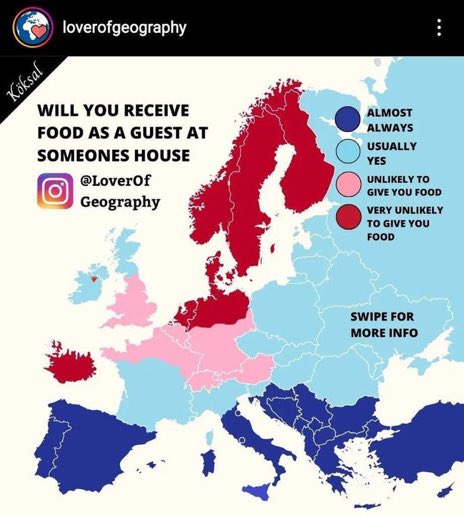

Support the Automatic Earth in virustime with Paypal, Bitcoin and Patreon.





